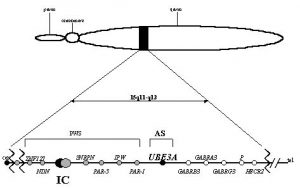Advancing New Research Methods For The Treatment Of Prader-Willi Syndrome
 An announcement has been made by InnoCentive Inc. and the Foundation for Prader-Willi Research regarding the importance of advancing new research methods for the treatment of Prader-Willi Syndrome.
An announcement has been made by InnoCentive Inc. and the Foundation for Prader-Willi Research regarding the importance of advancing new research methods for the treatment of Prader-Willi Syndrome.
Prader-Willi Syndrome (PWS) is a complex genetic disorder involving chromosome 15. Approximately 6,500 children are born with PWS each year. Children with Prader-Willi Syndrome experience a number of physical, behavioral, and neurological symptoms, although hyperphagia (unregulated appetite and a feeling of constant hunger) is one the best known characteristics of the disorder.
Children with PWS will eat large quantities of food frequently (binging) due to their constant appetite. They also will often adopt unusual food-related behaviors such as hoarding and/or eating inappropriate items such as frozen food or garbage in an effort to feel “full”. As well as experiencing constant hunger, children with PWS have low muscle mass compared to non-affected children, causing them to be especially susceptible to weight gain.
Hyperphagia is both extremely dangerous and difficult to control. The intense food cravings experienced by persons with PWS result in huge weight gain and morbid obesity, placing the individual at great risk for obesity related diseases such as diabetes and heart problems. There is also the risk of choking from an inability to control rapid food consumption. It is hoped that a greater understanding of the mechanisms involved in hunger and satiety would enable individuals with PWS to live more fulfilling lives and potentially be able to live more independently.
A benefit of increased research in the field will include a better understanding of appetite regulation and may lead to the development of a potential treatment for PWS. Further research will also assist scientists currently working to fight childhood obesity.
Source: Medical News Today
 Eating Disorder Self Test. Take the EAT-26 self test to see if you might have eating disorder symptoms that might require professional evaluation. All answers are confidential.
Eating Disorder Self Test. Take the EAT-26 self test to see if you might have eating disorder symptoms that might require professional evaluation. All answers are confidential.